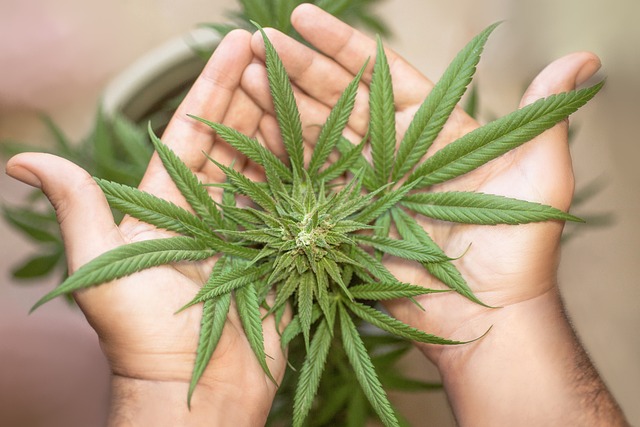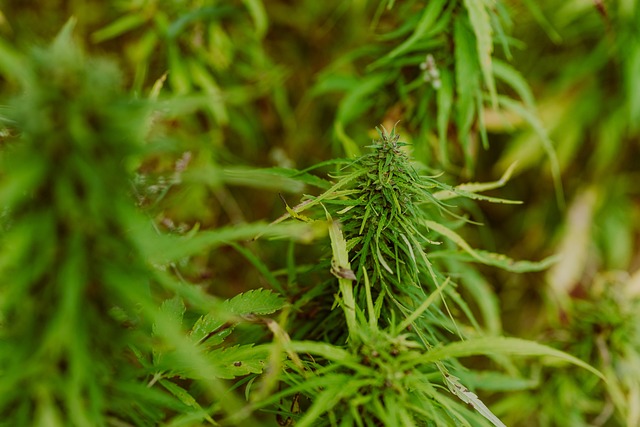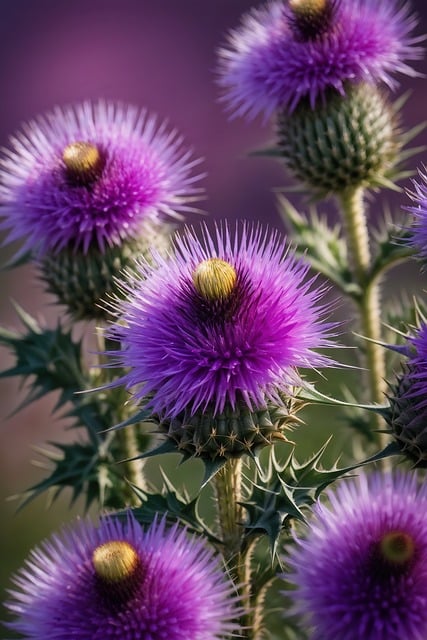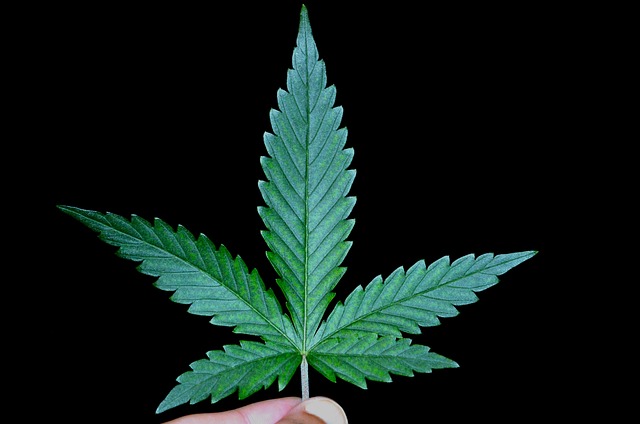THCA (delta-9 tetrahydrocannabinolic acid), a non-psychoactive cannabinoid found in the cannabis plant, has garnered attention for its potential health benefits, including anti-inflammatory and neuroprotective properties. Federally legal under the 2018 Farm Bill as hemp products with less than 0.3% THC by dry weight, THCA's legal status varies across the USA. In some states, it is fully legal due to its therapeutic potential and lack of intoxicating effects, while in others, where marijuana laws differ, THCA products may be subject to the same restrictions as THC. The evolving legal landscape means consumers must stay informed about state regulations to comply with laws and safely access THCA's wellness benefits. As cannabis legislation progresses, the role of THCA within holistic health practices is expected to expand where it is legally recognized in the USA.
Discover the transformative potential of THCA (Tetrahydrocannabinolic Acid), a non-psychoactive cannabinoid gaining prominence in the wellness sector. Our comprehensive article delves into the multifaceted aspects of THCA, from its legal status to its therapeutic properties and how it differs from Delta-9 THC. As we navigate the evolving landscape of THCA legality across the USA states, we explore the unique benefits of raw cannabinoids, their role in synergy with other compounds, and how they can be safely incorporated into your wellness routine. Join us as we unravel the science behind THCA and its transformation into THC, ensuring you’re equipped with the knowledge to make informed decisions about this promising compound.
- THCA Flower: The Cannabinoid at the Forefront of Wellness
- Understanding Delta-9 THC vs. THCA: What Sets Them Apart?
- THCA Legal Status in the USA: Navigating State Laws
- Potential Therapeutic Benefits of THCA Flower
THCA Flower: The Cannabinoid at the Forefront of Wellness

Delta-9 tetrahydrocannabinol acid (THCA) is a non-psychoactive cannabinoid found in the cannabis plant that has garnered attention for its potential therapeutic properties. As legislation evolves, THCA-rich hemp flower products are becoming increasingly available and are legal in various US states under the 2018 Farm Bill, which differentiates between hemp and marijuana based on THC concentration. The THCA flower, often with less than 0.3% delta-9 THC, is being explored for its wellness benefits, including anti-inflammatory, neuroprotective, and potential analgesic effects. Research indicates that THCA may support the body’s endocannabinoid system without the psychoactive impact associated with its decarboxylated form, delta-9 THC. As such, it’s a compelling subject of interest for those seeking wellness support within the legal framework established by state laws regulating cannabinoids.
The wellness community is abuzz with the potential of THCA flowers as a natural remedy for various ailments. These hemp buds are rich in THCA and offer a wide range of benefits, from supporting joint health to promoting overall well-being. The legality of THCA flowers varies by state due to the distinctions made under the Farm Bill between hemp-derived products and those derived from marijuana. In states where hemp-derived CBD is legal, THCA flowers are often included in this category, provided they meet the regulatory criteria set forth by state and federal laws. This has opened up new avenues for consumers to explore the benefits of cannabinoids within a legally compliant framework.
Understanding Delta-9 THC vs. THCA: What Sets Them Apart?

Delta-9 tetrahydrocannabinol (THC) and tetrahydrocannabinolic acid A (THCA) are both prominent cannabinoids found in the cannabis plant, each with its own distinct properties and legal statuses within the United States. THC is well-known for its psychoactive effects, which can induce euphoria, relaxation, and alter perception. In contrast, THCA is non-psychoactive and exists naturally in raw cannabis plants or when cannabis is stored under certain conditions. The legal landscape of cannabis varies across the USA; however, THCA is generally considered a legal compound because it does not possess the psychoactive qualities that are federally regulated.
The differences between THC and THCA extend beyond their psychoactive properties. THC, once heated through processes like smoking or vaporizing, converts into its psychoactive form, delivering the traditional ‘high’ associated with cannabis use. On the other hand, THCA is often touted for its potential wellness benefits without the mind-altering effects. It’s found in raw cannabis and some CBD products and is being studied for its anti-inflammatory, neuroprotective, and appetite-stimulating properties. As of this writing, many states across the U.S. have legalized THC for medical and recreational use, while THCA remains accessible in various forms within these states, adhering to state-specific regulations that govern cannabis products. Understanding the nuances between THC and THCA can help consumers make informed decisions about which cannabinoid may be most beneficial for their individual needs, given the evolving legal landscape and research findings on their respective benefits.
THCA Legal Status in the USA: Navigating State Laws

Delta-9 tetrahydrocannabinolic acid (THCA) is one of the many cannabinoids found in the Cannabis sativa plant and its legal status in the USA is a complex tapestry woven from federal and state regulations. While the 2018 Farm Bill legally defined hemp, which contains less than 0.3% THC by dry weight, as an agricultural commodity, the specific legal standing of THCA within this context varies across states. In some states, THCA is fully legal, reflecting their own state laws that align with or go beyond federal guidelines, recognizing its potential therapeutic properties and non-intoxicating nature. In these jurisdictions, residents can explore THCA legal in USA states for its wellness benefits without the psychoactive effects associated with delta-9 THC. Conversely, in other states where marijuana remains illegal or only legal under certain conditions, THCA products may be subject to similar restrictions. It’s crucial for consumers to be aware of their state’s specific laws regarding hemp-derived compounds. As the landscape of cannabis legislation continues to evolve, understanding the distinctions in THCA legal status across different USA states is paramount for compliance and safe consumption practices. Navigating these regulations requires careful attention to both federal and state statutes, as well as an understanding of ongoing legislative developments that could influence THCA’s legal standing.
Potential Therapeutic Benefits of THCA Flower

Delta-9-tetrahydrocannabinolic acid (THCA) is a non-psychoactive cannabinoid found in the cannabis plant that has garnered attention for its potential therapeutic benefits. As THCA is the precursor to delta-9-tetrahydrocannabinol (THC), it shares many of the same properties but without the psychoactive effects, making it a viable option for those seeking the health benefits without the high. THCA flower, which contains high levels of this cannabinoid, is becoming increasingly available in various states where cannabis has been legalized under specific conditions. For instance, in some parts of the USA, THCA flowers are legal provided they contain less than 0.3% delta-9-THC on a dry weight basis, as per the 2018 Farm Bill.
Research suggests that THCA may offer a range of health benefits, including anti-inflammatory and neuroprotective effects. It is believed to interact with the body’s endocannabinoid system, influencing pain, inflammation, and immune responses. This makes THCA a potential treatment for conditions like arthritis and multiple sclerosis. Additionally, preliminary studies indicate that THCA may have antiemetic properties, which could be beneficial for patients undergoing chemotherapy. As the legal landscape continues to evolve, more research will likely uncover additional benefits of THCA flower, further clarifying its role in holistic health and wellness regimens within states where it is legally permissible.
THCA-rich flowers have emerged as a prominent figure in the wellness landscape, offering a range of potential therapeutic benefits. As we’ve explored, THCA, unlike its psychoactive counterpart Delta-9 THC, holds promise for its wellness applications and is gaining recognition for its legal status across various USA states. With the nuances of its legality varying by state, it’s crucial for consumers to stay informed on local laws when considering incorporating THCA flower into their routines. The versatile nature of THCA as a non-intoxicating cannabinoid positions it as a promising addition to the health and wellness sector, with ongoing research continuing to unveil its potential benefits. As legalities evolve and scientific understanding deepens, the role of THCA flower in supporting overall well-being is poised to expand within the regulatory framework of the USA.
